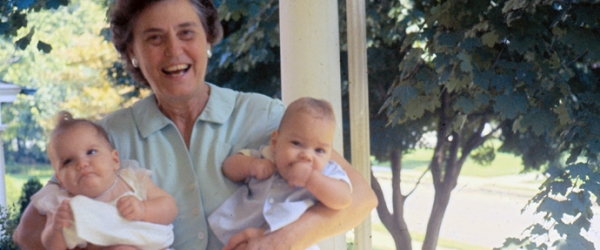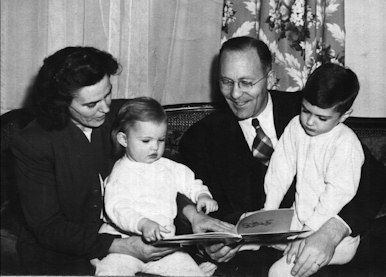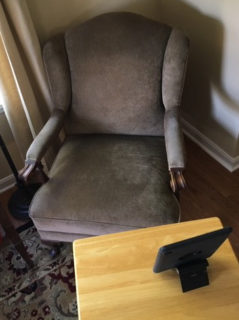
By Anna McShane — As Mother’s Day approaches in the United States, we honor and thank each mom who raised a SEND missionary. God used you in amazing ways to equip your children to serve the Lord and to reach the lost! Here are six of my mom’s lessons that prepared me for life as a global worker.
Hospitality was a way of life in my family of origin. Not entertaining. There’s a big difference. I learned very early how to stretch a meal if more people showed up than originally planned. Individual pieces of meat can be diced, braised, and stretched with a white or brown sauce to serve over rice. A can of tomatoes or other vegetables will stretch soup. Add a loaf of bread, a bowl of cut fruit, a salad, and voila! The meal planned for four now feeds eight. Still look a little meagre? Set the table with the good china and light some candles!
This was important knowledge when I lived near the airport in Manila and never knew who might unexpectedly show up. In more recent years, it was a great help when the eight students coming to our little Chinese apartment turned into 12 or 16. They particularly loved the little votive candles that dressed up the IKEA plastic dishes and mismatched flatware.
Our family home was a small, three-bedroom house, but if there was an unexpected need for more beds, kids got a pile of blankets on our parents’ floor. Many mornings I came down to find someone asleep on the couch. It might be a battered wife who left home in the middle of the night to seek refuge, or it might be a well-known theologian colleague of my dad’s who got stuck in the snow and couldn’t continue his trip.

I learned that the number of beds did not limit the number of people who could spend the night. I drew on that lesson when my Filipina neighbor showed up at 3 a.m. saying, “My husband’s on a drunk rampage. Can I sleep on your couch?” Or that night when severe weather kept a whole team of short-term workers from flying out, and I scrounged every sheet, blanket, and pillow we owned to bed them all down.
Today it would be ibuprofen, but back then it was aspirin. My mom was a great believer in getting up and getting going. If you were genuinely sick (fever, vomiting, etc.), you got great care but if you (or she) were just having a bad morning, it could be remedied.
I have found this principle to work in any country, any climate, and any situation. I now carry Starbucks Via packets and a small bag of ibuprofen in my backpack for those mornings when the night was far too short. Malingering gets little accomplished.
One time, as my mother was wrapping up her message at a large women’s conference, I saw her slip beginning to droop. I tried to get her attention, but she was intent on the Word and didn’t see me. When she turned to leave the pulpit, her slip dropped all the way to the floor. The audience drew a collective breath. She stooped over, picked it up in a ball, and burst out laughing—and so did all the women. To this day, I occasionally run into a woman who says, “I was there that time your mom lost her slip!” Laughing at ourselves gives everyone else the permission to laugh with us and makes us human. Laughter is especially important when culture and language make us the butt of the joke.
I have many memories of my mom heading out the door with the words, “I’ve offended someone, and I need to go make it right.” She was an outspoken, forceful person, and she knew it. But she also knew that keeping peace with co-workers was a high priority. She might have been 100% right, but going to “eat humble pie” and say she was sorry usually defused the tension and ministry went forward. This lesson is the one I hate the most, but it has saved many relationships.
Age takes its toll. Mobility declines. We can’t always do what we once did, but God is able to use even the elderly. At 80, my mom filled in as a principal for a year and salvaged a struggling school. As she moved into her 90s, she spent most of each day in a comfortable chair. Her pastor called it “the Command Center.” Beside her was a stack of books, a Bible, and a phone that rang constantly. Local pastors arrived with lists of issues “that I can’t talk about with anyone else.” She listened, prayed, and offered counsel. Young moms came to pour out their hearts while their kids played on the floor. Once I got a call from her with the query, “Have you ever heard of multiple personality disorder?” I replied that I had and she asked for a crash course. “I’m counseling a woman with this and I need to know more.” Even in her 90s, she was still learning what she needed for ministry.
This week I’m traipsing around a huge Chinese city with a knee brace and a borrowed walking stick. Climbing on and off buses and trains hurts, as do the blocks of walking between meeting with former students and Chinese brothers and sisters in the Lord. There’s coming a day when I won’t be able to do this in person, but I’m not too worried.

I have the Command Center chair in my living room now and I plan to use it more in the future. There will be books and a Bible near. There won’t be a phone beside me; instead I’ll have my iPad or computer in front of me as I’m the one listening, praying, and giving counsel to friends on the other side of the world. It’s already happening a lot.
I’m not quite there yet, but I want to be ready when I grow up. Age is no excuse to stop ministering.
We appreciate the sacrifices that families make when their loved ones serve as missionaries. Prayer can help bridge the gap. Download a free bookmark with daily themes to help you pray for your missionary family members.